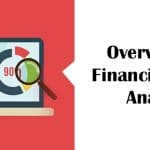Why do we invest in stocks? Is it only to gain out of the appreciation in share price? No. Apart from share price appreciation, many of the investors also want a regular source of income. This regular source of income that is provided by the stocks is known as a dividend. The dividend income is the way through which a company distributes its net profits equally among its shareholders. The companies that are performing well would earn more profit, which would naturally mean an increase in dividend over a period of time.
Most of the established companies pay a regular amount to the investors so they can build up a cash flow stream in an annuity manner. There are also some investors who wish to reinvest their dividend income for more returns.
Dividend income plays a great role in determining the attractiveness of stocks in the Indian stock market. The increase or decrease in dividends also plays a great role in the increase or decrease in the prices. When a company with a long-standing history of dividends suddenly reduces its dividend payout, it is likely to negatively impact its stock price. On the other hand, if a company paying a certain fixed dividend suddenly earns good profit in the period, and decides to distribute it as a dividend, investors will react positively and the share prices may increase.
“In May 2018, Ingersoll Rand, surged 20% and it’s stock price reached Rs 854 after it announced a special dividend of Rs 202 per share as the second interim dividend. The board also declared a final dividend of Rs 3 per share, which made the total dividend to Rs 208 for the financial year ended March 2018.”
Supporters of the dividend income highlight that a high dividend payout is crucial for an investor because it is an important indicator of the company’s financial health. The companies which have consistently distributed dividends are considered as some of the most stable companies in India. Needless to say that the company which pays consistent and high dividends are attractive and lures many investors.
Do all companies pay dividends?
When we say that companies distribute their profits in the form of dividends, it doesn’t imply that every company will do the same. It is solely a company’s prerogative whether it will distribute dividends or not, even if it makes a profit. Once a company makes a profit, it may pay dividends or reinvest the profits further. Usually, a mature and established company, which doesn’t plan to reinvest the profits issues dividends. The reason why some companies choose not to dividends are:
Why companies do not pay dividends?
- The company is still in the growing phase and it wants to conserve every bit of money. They want to use it as funds for financing its future projects.
- Sometimes even mature firms believe that reinvesting the profits for future growth is a better way to increase their value and be more attractive to the shareholders. These companies target at increasing their share price by investing the profits into a new project, purchasing new assets, repurchasing some of their own shares and acquiring a new company.
- Instead of paying dividends, the companies may plan to issue new stocks. The high expense of another stock issuance is financed out of the plowed-back profit.
Why should you invest in dividend-paying stocks?
We all know that dividend is one of the best forms of regular income alongside enjoying capital appreciation from equities. However, being a source of periodic income is not the only advantage of dividends. They increase investing profit, provide a new element for the fundamental analysis, and hedge the overall risk of the portfolio. Let us look at each of the reasons behind investing in dividend stocks in details:
1. Expansion of profits
One of the main benefits of investing in dividend stocks is that it allows you to build steady income as the payment grows over time. The established companies typically increase their profits as they grow. There are companies which have been steadily paying dividend since the past 25 years. Risk is also an element of investing. The prices of stocks may go up and down, hence there can be no surety that their value will increase. However, if the stock is a dividend making one, at least a portion of returns to the investors can be guaranteed.
2. An important tool for equity valuation
Dividends are an important tool for equity valuation and stock selection. Valuation of companies done on the basis of dividend is much more reliable than the other measures such as the P/E ratio, S/E ratio, etc. The price or sales may fluctuate, dividend grows steadily over a period of time. Dividends are the real touchstone for the company’s healthy financials. No company can afford to pay dividends unless it has an actual cash flow.
The company’s current and historical dividend payout forms the nucleus of the fundamental analysis. Dividend discount model or Gordon’s model is one of the most widely used techniques of equity valuation. Dividends provide a clear picture of the year-on-year growth of a company and its profitability irrespective of the fluctuations in its stock price.
4. Better performers during a bearish phase
When there is a bearish phase in the market or a market crash, the dividend stocks perform better than non-dividend stocks. For example, you hold stocks of two companies, ABC and XYZ. The former is a non-dividend paying company and the latter pays you a dividend of Rs 3.50 per share every year. If you look at the size of the company, ABC is a conglomerate while XYZ is financially strong, but only has a single line of business.
Imagine, you have a portfolio of Rs 20,000, out of which you have Rs 10,000 worth of ABC stocks and the rest is the XYZ stocks. The market suddenly crashes by 50% and your entire portfolio is in losses. You need to sell the shares to arrest the losses. Which one would you sell? ABC may be a bigger company, but XYZ is paying you Rs 3.50 per share annually. If you sell the latter, those regular payments will stop. Naturally, you will have to sell ABC.
This shows that dividend-paying stocks perform better than non-dividend paying stocks during tough times in the market.
5. Helps to protect the purchasing power of the capital
While making investments, most of the times we forget to factor in the impact of inflation. If a stock gives us a return of 5% and the rate of inflation is 2%, then our inflation-adjusted return is only 3%. On the other hand, if the return on the stock is 5% and the rate of inflation is 7%, then you have actually suffered an investment loss of 2%.
However, if the stock is paying a dividend of 3%, it means that the investors still have a return of 3% which cannot be eaten up by inflation. It thus implies that dividend income allows you to enjoy profits which outpaces inflation. Keep in mind that the stock prices of the company do adjusts for the dividend announcement on or before the ex-date.
What all should you know about Dividend income?
Here are some of the Dividend terminologies that you must be well-versed with:
1. Dividend Yield
Dividend Yield is the ratio of the Dividend per share to the market price of the share. The Dividend is usually declared as a percentage of the face value of the company. So if a company declares 200% dividend it means dividend of Rs 2 if the face value of the stock is Re 1. If the Current Market price of the share is Rs 250, then the dividend yield is Rs 2/ Rs 250= 0.8%.
2. Cash Dividend
The dividend paid to the shareholders from the company’s profits.
3. Stock Dividend
Stock Dividend is the dividend paid in the form of additional shares instead of cash payout. Some companies may decide to distribute dividend in this form to the shareholders on record in case it doesn’t have sufficient cash.
4. Dividend Declaration Date
This is declared by the directors of the company and refers to the date on which the upcoming dividends will be paid off. The additional information given contains Ex-dividend date, Record Date and the Dividend payout ratio.
5. Ex-Dividend Date
This is the time between the announcement and the dividend payout date. It usually comes before the Record date, sometimes it is a day before the Record Date.
6. Record Date
This is the date on which the Dividend payout is done. If you want to get the dividend, your name has to be present in the company’s list of eligible shareholders.
What should be your strategy to buy a dividend income stock?
1. Find a dividend-paying stock
Through the various financial websites, you can come to know about a few stocks which have paid consistent dividends in the past 5-10 years. The first step is to screen 5-6 such as stocks and research on them further.
2. Analyze the company
The next step is to analyze the financials of the company and spend a lot of time understanding its stability. You need to assess the trends in the revenue and profit earned, the assets, the debt and every other element which indicates the financial health of the company. In fact, you need to thoroughly study the historical data of the company. This is surely time-consuming and cumbersome, but definitely worth the effort.
3. Analyze the safety of the dividend
After you have understood the business of the company, you must assess the dividend-related parameters. Once such an important parameter is the Dividend Yield. This ratio is expressed as the Dividend per share to the Current price per share. Apart from this, you must also keep a tab on other dividend oriented parameters like Dividend payout, PAT, etc. Good companies have a track record of maintaining the consistent dividend payout and you can bank upon them.
4. Check Long-term prospects of the company
Dividend income investing is a long-term strategy. Hence, you will not want to sell the dividend yielding stocks and hamper your prospects of earning a long-term income. Hence, you must choose your stocks wisely. It is better not to go for cyclical stocks or the ones that depend on seasonal business. Look for those companies which have the previous history of withstanding economic recessions and which have come made a strong comeback. There are big corporations which grow irrespective of the external conditions.
Dividend Capture Strategy
One of the strategies that day traders adopt is the Dividend Capture Strategy. This is in contrast to the traditional approach in which the stocks are bought and held for a longer time. The logic behind this to reap the benefits of regular income over a long time. Dividend capture is an active trading strategy which involves buying and selling of shares frequently and holding them for a time just enough to get the dividend income.
The day traders using this strategy keep a tab on the company events and dividend payout calendar. There are many who just buy the stock a day or two before the dividend declaration and then sell the stock are receiving the current dividend income. There are companies which pay dividend annually, monthly or quarterly. The Dividend capture day traders usually prefer to go for the stocks with large annual payments, so that this strategy can be used to earn maximum profit.
What would be the tax treatment of dividend income
As an investor, the next very important question which may come to your mind is about the tax treatment for Dividend. The tax treatment differs based on the place of incorporation of the company. Let us divide it into two parts:
1. Dividend from an Indian company
If you receive a dividend from an Indian company, it is tax exempt. This is due to the reason that the company already deducts the Dividend Distribution Tax (DDT) before paying the dividend. The Finance Act 2016 (Section 115BBDA), however, states that if the dividend income exceeds Rs 10,00,000 as an aggregate from all the Indian companies, then you have to pay tax at the rate of 10% on the amount exceeding Rs 10 lakhs.
For instance, you have received a dividend worth Rs 12,00,000 from all the companies you had invested in during a particular year. You will have to pay taxes @ 10% on Rs 2,00,000, which is the amount exceeding Rs 10,00,000. The total tax payable by you will be Rs 20,000 (10% of Rs 2,00,000).
2. Dividend received from an Overseas Company
The Dividend that you receive from an overseas company or a foreign company is taxable. This dividend will be charged under the head “Income from other sources”. The Dividend received from a foreign company will form a part of your total taxable income and you will be taxed as per the tax slab applicable to you.
Dividend received from a foreign company is taxed in India as well as the country in which it has its origin. In such cases, where the tax is paid in both the countries, an investor can avail Double Taxation Relief under Section 19 of the Double Taxation Avoidance Agreement.
Final Thoughts
Stock investing is not just about gaining through the increase in their prices. It is also about reaping a regular income. This regular income comes in the form of dividends. You are well aware that to gain maximum out of equity investing, you must adopt a long-term strategy. Dividend income is an additional benefit that you owing to holding a stock for the long term. Hence, you must be particular about choosing stable dividend stocks. Companies like Coal India Limited, HCL Tech, HPCL, REC, SBI, ONGC, etc have a history of paying dividends consistently over a period of time.
However, there are certain caveats that you need to consider. A company with a high but inconsistent dividend yield may not be a good pick. In one year, they may pay a Dividend yield of 8% and in the following year, the yield may only be 0.8% per annum. Hence, the key is consistent payout history over the years. Secondly, the dividend declared must be in tune with the fundamentals of the company. If any company with weak fundamentals declares dividends just to lure and satisfy the shareholders, it must be surely avoided. Such companies will not be able to sustain the dividend payments and are sure to be a disappointing investment in the long-run.
It is highly imperative that you choose the right company based on your research. Not just that, you must also monitor the company after choosing it. Since there are a lot of factors that may impact the share price and the dividend decisions, you must be updated about the happenings in the market. Once, you make a well-informed decision and invest in high dividend yielding stocks, you can get the dual advantages from equity investing: Capital Appreciation + Regular income. You must reinvest your dividend income again to accumulate further wealth systematically.
About Author

Stock Trading Now trade in ₹9 Per Order or ₹ 999 Per Month Plans.
Future & Options Access F&O contracts with advanced tools for hedging and speculation.
Currency Trading Trade in major currency pairs and manage forex exposure efficiently.
Commodity Trading Diversify Trading with MCX & NCDEX by Trading in Gold, Silver, Base Metals, Energy, and Agri Products.
Margin Trading Funding Boost your buying power with upto 5X, Buy now Pay Later
Algo Trading Back test, Paper Trade your logic & Automate your strategies with low-latency APIs.
Trading View Leverage Trading View charts and indicators integrated into your trading platform.
Advanced Options Trading Execute multi-leg option strategies with precision and insights.
Stock Lending & Borrowing Earn passive income by lending stocks securely through SLB.
Foreign Portfolio Investment Enable NRIs and FPIs to invest in Indian markets with ease and compliance.
IPO Invest in upcoming IPOs online with real-time tracking and instant allotment updates.
Direct Mutul Funds 0% Commissions by investing in more than +3500 Direct Mutual Fund Scheme.
Corporate FDRs Earn fixed returns with low-risk investments in high-rated corporate fixed deposits.
Stocks SIPs Build long-term wealth with systematic investment plans in top-performing stocks.
Bonds & NCDs Access secure, fixed-income investments through government and corporate bond offerings.
Depository Services Safely hold and manage your securities with seamless Demat and DP services with CDSL.
Insurance One-Stop Destination For All Your Insurance Needs. Compare Quotes from Top Insurers & save bigs.
Journey Tracing our growth and milestones over time.
Mission & Vision Guided by purpose, driven by long-term vision.
Why RMoney Platform Smart, reliable platform for all investors' needs.
Management Experienced leadership driving strategic financial excellence.
Credentials Certified expertise with trusted industry recognition.
Press Release Latest company news, updates, and announcements.
Testimonials Real client stories sharing their success journeys.
7 Reasons to Invest Top benefits that make investing with us smart.
SEBI Registered Research Trusted insights backed by SEBI-compliant research.
Our Technology Advanced tools enabling efficient online trading.
Calculators Access a suite of smart tools to plan trades, margins, and returns effectively.
Margin Calculator Instantly check margin requirements for intraday and delivery trades.
MTF Calculator Calculate MTF funding cost upfront to ensure full transparency before placing a trade.
Brokerage Calculator Know your exact brokerage charges before placing any trade.
Market Place Explore curated investment products and trading tools in one convenient hub.
RMoney Gyan Enhance your market knowledge with expert blogs, videos, and tutorials.
Performance Tracker Track our research performance with full transparency using our performance tracker.
Feedback Share your suggestions or concerns to help us improve your experience.
Downloads Access important forms, software, and documents in one place.
Locate Us Find the nearest RMoney branch or service center quickly.
Escalation Matrix Resolve issues faster with our structured support escalation process.
Back Office Log in to view trade reports, ledger, and portfolio statements anytime.
Account Modification Update personal or bank details linked to your trading account.
Fund Transfer Transfer funds instantly online with quick limit updation to your trading account.
Bank Details View our registered bank account details for seamless transactions by NEFT, RTGS or IMPS.
How to Apply IPO Step-by-step guide to apply for IPOs using your trading account.
RMoney Quick Mobile App Trade on-the-go with our all-in-one mobile trading app.
RMoney Quick login Quickly access your trading account through the RMoney Quick web-based trading.
RMoney Rocket Web Version Experience powerful web-based trading with advanced tools for algo traders.
RMoney Rocket Mobile Version Trade anytime, anywhere with our feature-rich mobile trading platform.




















